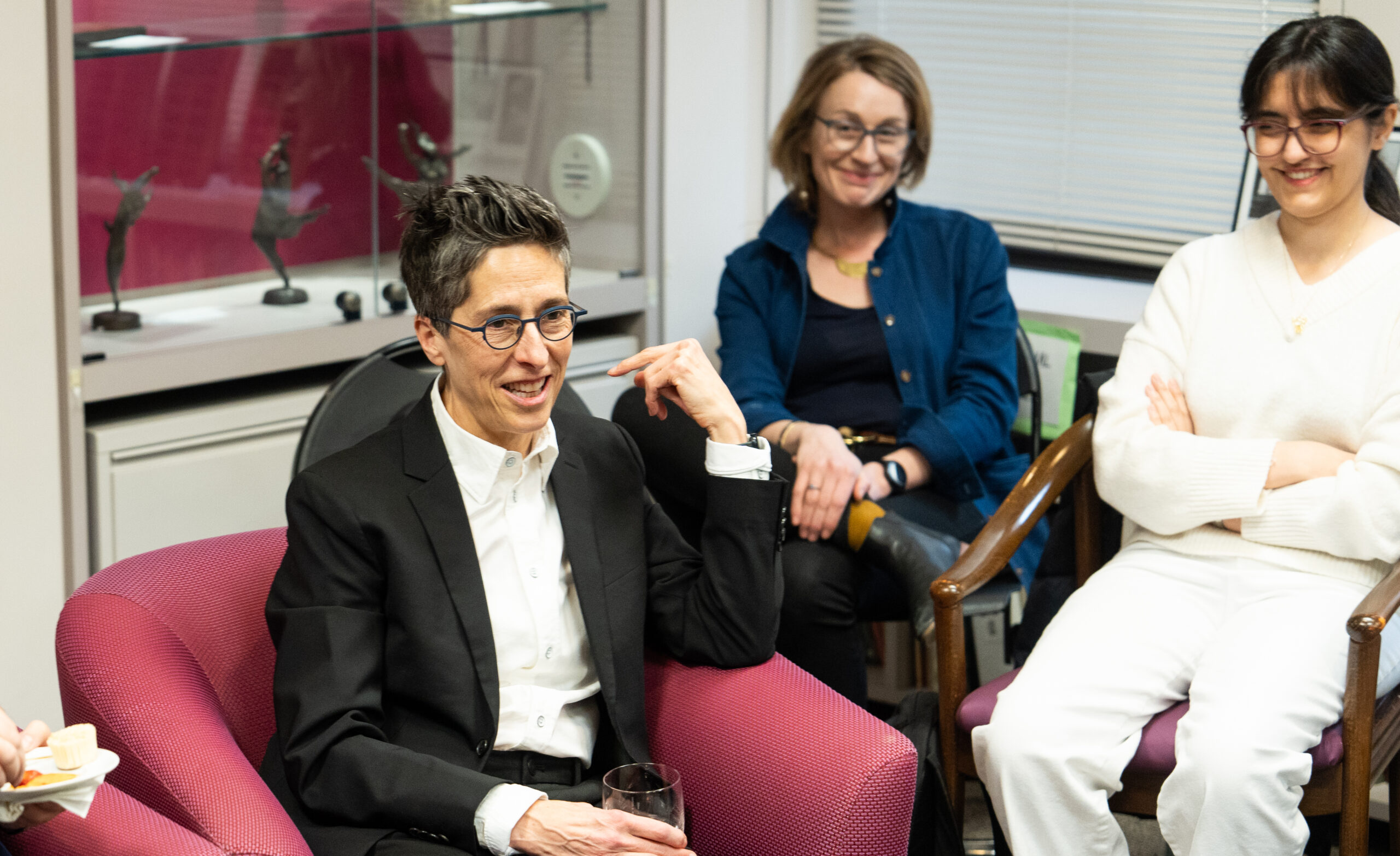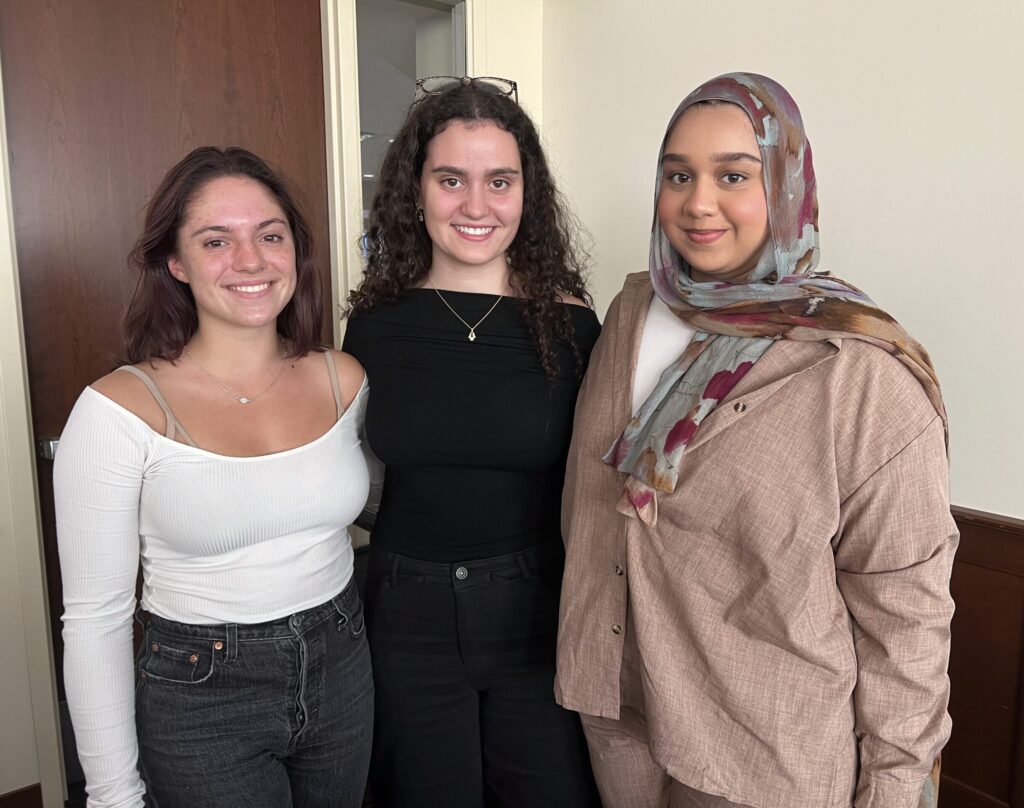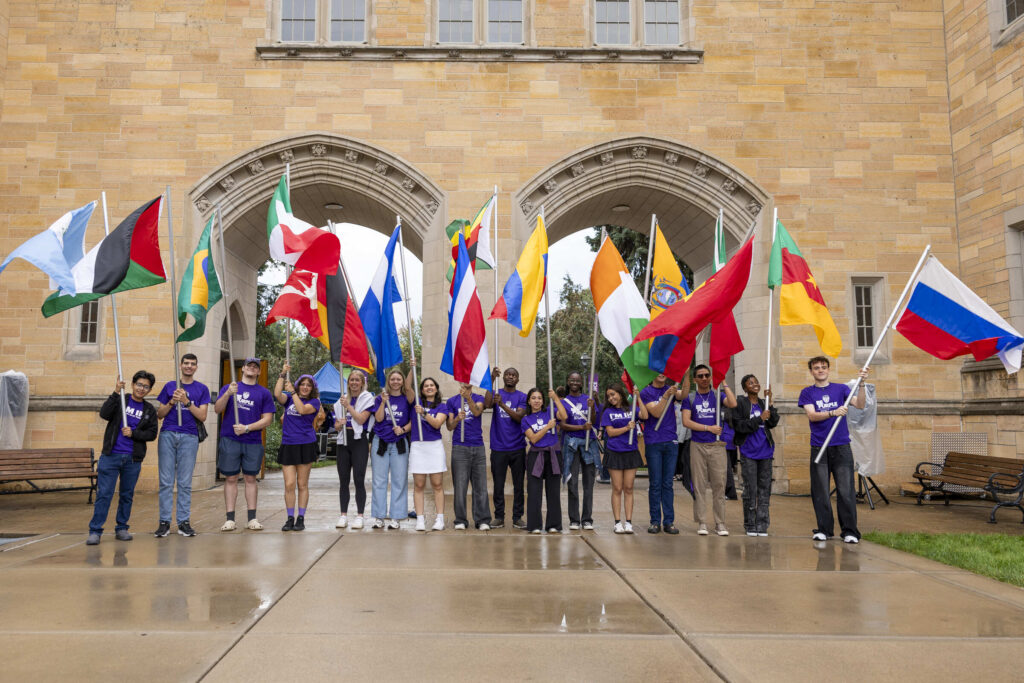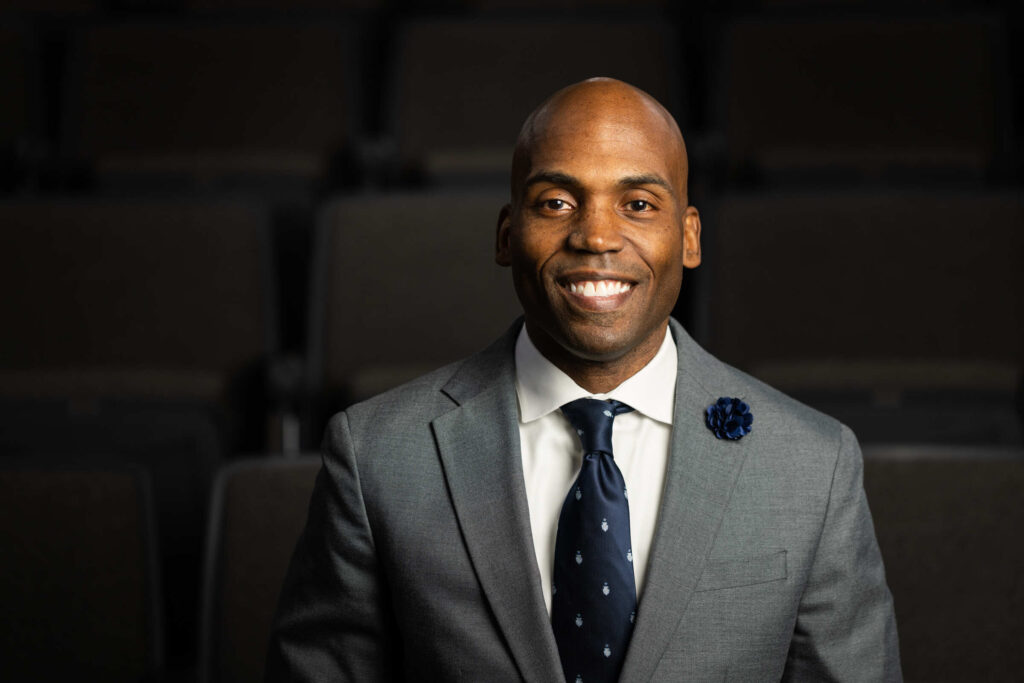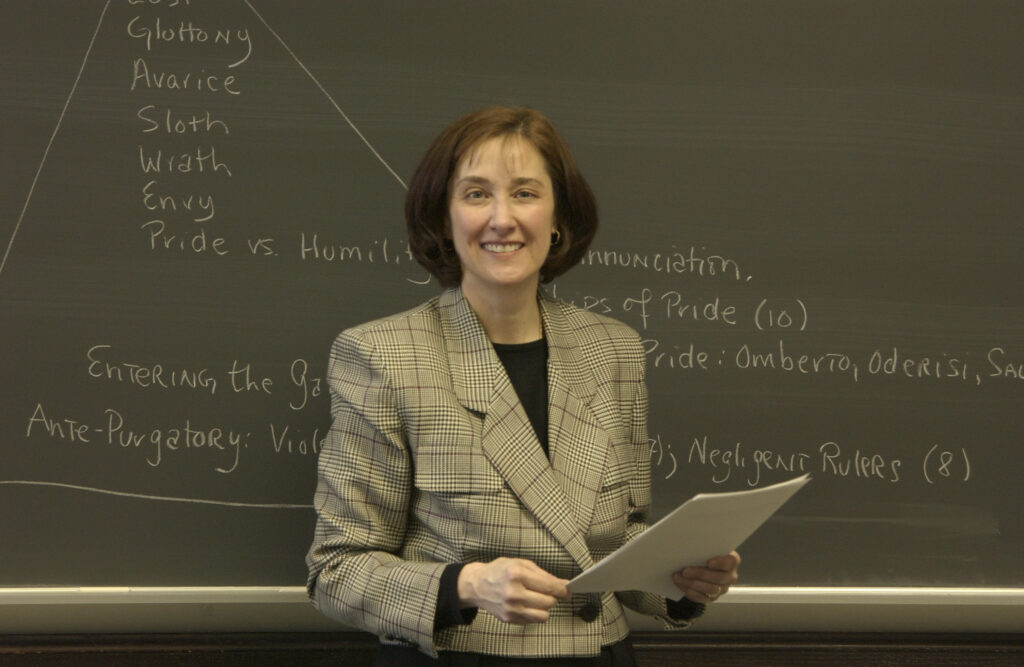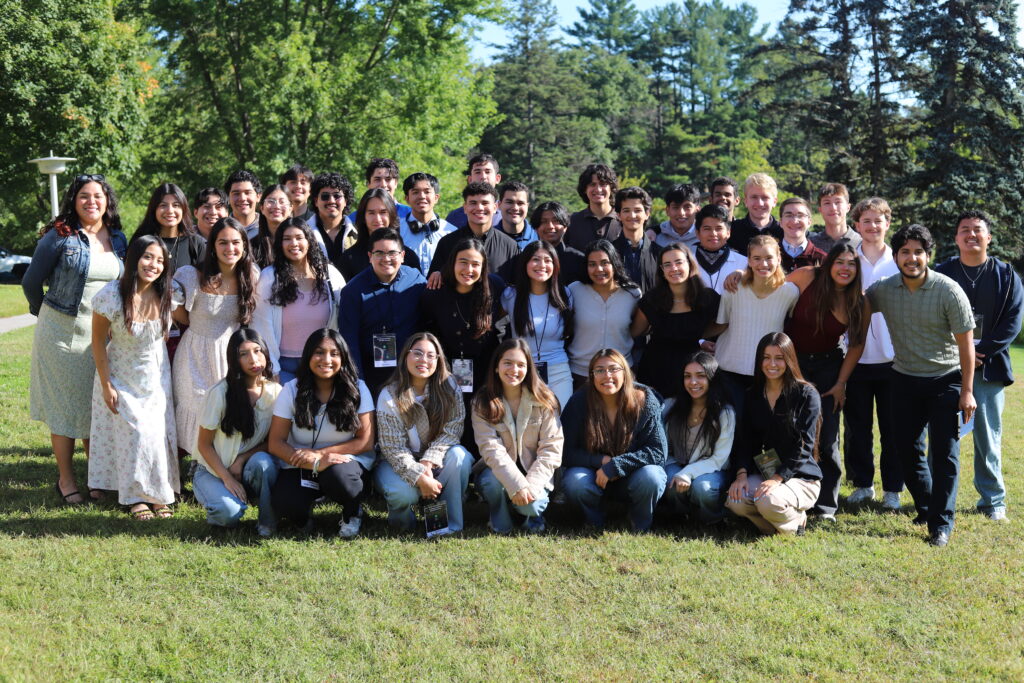Alison Bechdel is not afraid to share her truth with others. For decades, the critically acclaimed cartoonist has used her comics and memoirs to tell the truth about herself, her family, and the world.
Her graphic memoir, Fun Home: A Family Tragicomic – which was turned into a Tony-award winning Broadway musical – explores the author’s struggle with her sexual identity, coming out as a lesbian and the complex relationship with her father. Bechdel’s most recent work, The Secret to Superhuman Strength, explores her lifelong relationship with exercise, and getting at the truth of seeing things as they are.

But truth is not always easy to find, Bechdel told audience members as the 2024 Women’s History Month speaker at the University of St. Thomas in Minnesota. Since 1994, the Luann Dummer Center for Women at the university has offered the opportunity to engage with a distinguished woman speaker each March.
“Maybe my fixation on truth is naïve and childish, because complicated people genuinely see things differently – they can spin and slant and create conspiracy,” Bechdel said. “And now, with rampant disinformation and deepfakes and artificial intelligence, truth is starting to seem like a very quaint idea. But, somehow, I feel like it’s still important.”
Bechdel’s works have influenced scholars and the public alike. Most famously, the Bechdel Test has come to measure gender bias in film (to pass the test, works must feature two female characters who have a conversation about something other than men). The test was born out of her long-running comic strip “Dykes to Watch Out For,” which was one of the earliest representations of lesbians in popular culture.
“I didn’t see people like me or my friends reflected in culture,” Bechdel said. “We were literally omitted from the record, so I decided I would just create that depiction myself.”
The comic strip, which debuted in 1983, was transformative for St. Thomas Associate Vice Provost for Undergraduate Student Achievement Lisa Waldner, who introduced Bechdel at the speech. Waldner called the work a lifeline to members of the LGBTQIA+ community.
“Seeing her characters in everyday situations makes them relatable to all,” Waldner said. “And when we see the humanity in each and every one of us, we have a chance to live out what Catholic social teaching calls us to do: respect the dignity of the human person, because we are all made in the image of God.”
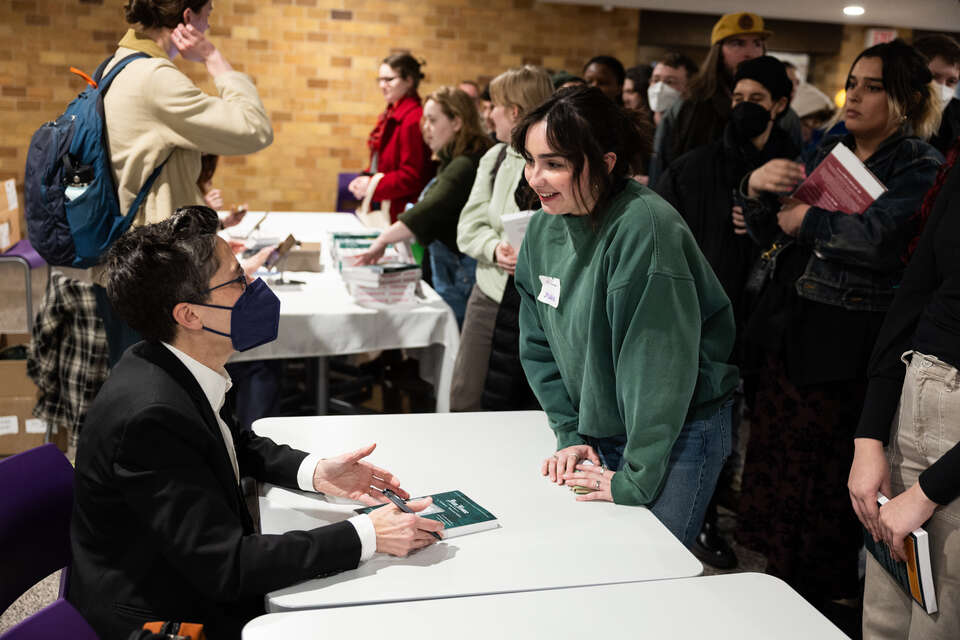
Throughout Bechdel’s speech, the author displayed dozens of her own cartoons, relying on them to reinforce anecdotes and demonstrate her lifelong quest for truth. She encouraged audience members to find their own truth, and to see themselves as part of our much larger world.
“Seeing things as they are is a really difficult and complex process, but it’s never as painful as not doing it at all,” Bechdel said.
Psychology faculty Roxanne Prichard attended the speech along with students from her honors seminar called Leading from the Margins: Queer People of Color as Vanguards of Social Change. The class, co-taught by sociology faculty Patricia Maddox, also got a chance to meet Bechdel in a small group reception earlier in the day.
“This conversation, and Alison’s evening lecture, provided us the opportunity to contextualize the pace and rhythm of social progress,” Prichard said. “… I hope Alison’s message inspires the St. Thomas community to take more time in conversation across generations and across identities. I hope it encourages us to search for the untold stories in our own community.”
In addition to the Women’s History Month speaker, the Luann Dummer Center for Women is hosting a series of panel discussions, presentations, and other events throughout March. A full list is available on TommieLink.
